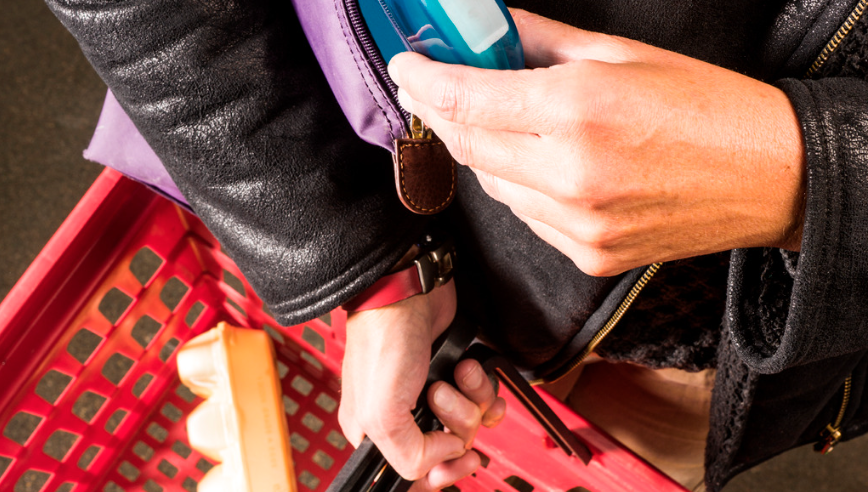Mayor Gloria Supports State Legislative Packages Tackling Rising Retail Theft, Illicit Drug Sales
May 29, 2024 | Mayor Todd Gloria

State legislators have advanced a comprehensive package of bills aimed at enhancing accountability for retail theft, combating illicit drug sales, and increasing access to treatment. This initiative underscores California leaders’ collective commitment to addressing these critical issues that impact our communities every single day.
I applaud the leadership of Senate President pro Tem Mike McGuire and Speaker Robert Rivas for taking decisive action on this issue. These bills provide San Diego and other cities with the necessary tools to tackle organized retail theft and address the growing threat of illicit fentanyl.
Among the legislative measures is one of my sponsored bills, SB 1502, led by Senator Ashby, which aims to combat the rising threat of xylazine, commonly known as “tranq.” This bill is part of a broader effort to address the complex challenges posed by illicit drug use and its impact on cities across California.
The legislative package includes several key bills to combat retail theft:
• AB 2943 (Zbur, Speaker Rivas): Creates a new felony to combat retail theft, addressing root causes and facilitating the aggregation of different thefts.
• AB 1794 (McCarty): Allows thefts by the same perpetrator to be aggregated between different places and victims, enabling retailers to report crime directly to district attorneys.
• AB 3209 (Berman, Speaker Rivas): Authorizes courts to impose a Retail Crime Restraining Order.
• AB 1779 (Irwin): Restores cross-jurisdictional prosecutions.
• AB 1960 (Soria): Provides enhanced penalties for individuals who take or destroy property while committing a felony.
• AB 1972 (Alanis): Expands the CHP property crimes task forces to combat increased levels of cargo theft.
• AB 1802 (Jones-Sawyer): Makes permanent the crime of organized retail theft and the operation of the CHP property crimes task force.
In addition, several Senate bills aim to enhance public safety:
• SB 1319 (Wahab): Expedites approval of projects that expand substance use disorder rehab facilities.
• SB 1320 (Wahab): Requires health plans to reimburse providers who offer integrated primary care and behavioral health services.
• SB 1385 (Roth): Supports navigators in hospitals and the criminal justice system to connect individuals to treatment for opioid use disorder.
• SB 1442 (Ochoa Bogh & Skinner): Empowers CalRX to provide affordable fentanyl testing strips.
• SB 1468 (Ochoa Bogh & Roth): Educates providers on new federal rules for dispensing narcotic medication for detoxification treatment.
• SB 909 (Umberg): Addresses physician shortages in underserved areas by eliminating the cap on the Steven M. Thompson loan repayment program.
• SB 908 (Cortese): Requires CDPH to raise awareness of opioid overdoses and develop guidelines to prevent fentanyl-related deaths in young children.
• SB 910 (Umberg): Establishes statewide standards for collaborative courts to improve treatment for individuals in the criminal justice system.
• SB 950 (Skinner): Expands re-entry hubs to provide treatment options for individuals returning from the criminal justice system.
• SB 1502 (Ashby): Prevents illicit use and trafficking of xylazine, an animal tranquilizer linked to rising overdose deaths.
• SB 1144 (Skinner): Disrupts the sale of stolen goods on online marketplaces by requiring certification of third-party sellers.
• SB 1416 (Newman): Increases penalties for organized retail theft in large-scale schemes.
• SB 905 (Wiener): Removes the locked door loophole for automotive property thefts.
• SB 982 (Wahab): Makes the law on organized retail theft permanent.
• SB 1242 (Min): Imposes higher penalties on criminals who create fires to engage in retail theft.
I am hopeful that the Senate and Assembly will work swiftly to finalize this comprehensive package and send it to Governor Newsom for his signature. This legislation is vital to our ongoing efforts to create safer, healthier communities across California.
Filter by Category
Airports (1)
Arts and Culture (9)
Business (20)
Environment (44)
Human Interest (7)
Library (14)
Parks and Recreation (19)
Personnel (10)
Public Safety (19)
Public Works (57)
Technology (4)
Transportation (1)
Airports (1)
Arts and Culture (9)
Business (20)
Environment (44)
Human Interest (7)
Library (14)
Parks and Recreation (19)
Personnel (10)
Public Safety (19)
Public Works (57)
Technology (4)
Transportation (1)
